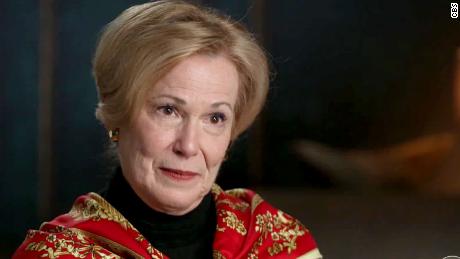At least part of the failed response can be fairly attributed to over-politicization of the pandemic by the former Trump administration. One form this took is political pressure on public health agencies like the US Centers for Disease Control and Prevention (CDC) and the Food and Drug Administration (FDA). Politics are always part of public health; but too much political interference can undermine experts’ work. In part, it depends where politics comes in. Political influence on broader policy and budget decisions is substantially more justified than political involvement in collecting and analyzing data, where expertise is crucial.
This week, former CDC Director Robert Redfield confirmed to CNN something reported last September: that even the CDC’s scientific Morbidity and Mortality Weekly Report was subject to political pressure and that he was asked to change the report “on more than one occasion.” (Former Health and Human Services Secretary Alex Azar has denied that he put pressure on Redfield.)
The Morbidity and Mortality Weekly Report (MMWR) has traditionally been authored by career scientists and seen as a scientific publication. It is treated by scientists, public health officers, and reporters as a source of objective data. To give some examples of what experts turn to the MMWR for, in 2019 the data about the US measles outbreak — the largest since 1992 — was published in the MMWR. This week, the MMWR carried an article on the effectiveness of mRNA vaccines. The MMWR includes scientific analyses and data and is seen as a reliable source of accurate information from what is, undoubtedly, one of the best public health agencies in the world.
But Redfield described intense political pressure to change the content of these documents. Unsurprisingly, public health experts expressed outrage at that interference, pointing out that the reports are relied upon as scientifically vetted, accurate information and the basis for public health decisions.
It’s appropriate for elected or politically appointed officials to want to have a say in matters that involve values and allocation of scarce resources. But if politics skew the data, the decisions cannot be well founded. Political intervention in the evidentiary basis for decisions — essentially, rewriting the data to fit the politics — only harms. This appears to be the case in the pressure to rewrite the MMWR: an attempt to change the data to fit the administration’s political needs, rather than the reality on the ground. That is politicization of public health in its worst form.
What can be done to prevent recurrence? We could see the Trump administration as an unusual situation. Trump was an unusual President, and we may be tempted to see him as a unicorn, a once-in-a-lifetime. But the temptation to politicize public health in a crisis is always there, and with a precedent set, we may want to be cautious.
One of the things that makes the CDC especially vulnerable to political pressure is that there is no statute encoding its functions and protecting the agency. That is changeable; Congress can pass a statute encoding at least some of CDC’s powers.
However, this carries risks. The CDC has changed over the years, and it is relatively easy to change its structure and adapt it to developing needs exactly because it has no statutory framework that needs to be changed to do that. But the lack of a framework also leaves it vulnerable to pressure. A statute that, at least, sets up what MMWR should be, saying clearly that the reports should “be based on the best available science” and “undergo peer review”, and imposes limits on political intervention in the reports, can help protect CDC from a repeat of the events. A broader law giving the CDC’s action a legal foundation, and mandating, for example, that CDC’s decisions need to be science-based can also help protect it.
To effectively respond to a public health emergency, we need good, science-based information. Political intervention in the provision of such information is a real risk. We can reduce that risk. And we should.






